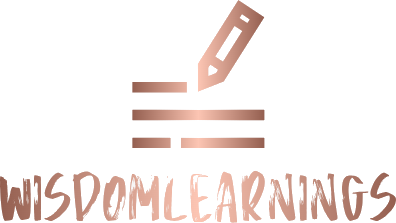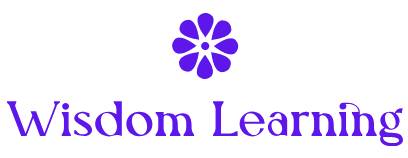Table of Contents
Quantum computing represents a revolutionary leap in computational technology, promising to solve complex problems that are beyond the reach of classical computers. Unlike traditional computers, which use bits as the fundamental unit of information, quantum computers leverage the principles of quantum mechanics to process data in fundamentally different ways. This article provides an overview of quantum computing, explaining its core concepts, potential applications, and the challenges it faces.
1. Fundamental Concepts of Quantum Computing
1.1. Quantum Bits (Qubits)
At the heart of quantum computing is the quantum bit, or qubit, which serves as the basic unit of information. Unlike classical bits, which are either 0 or 1, qubits can exist in a state of superposition. This means a qubit can represent both 0 and 1 simultaneously, thanks to the principles of quantum mechanics. This property allows quantum computers to process a vast amount of information concurrently.

1.2. Superposition
Superposition is a fundamental principle of quantum mechanics that enables a qubit to be in multiple states at once. When a qubit is in superposition, it can perform many calculations simultaneously. This capability dramatically increases the computational power of quantum systems compared to classical computers, which process one calculation at a time.
1.3. Entanglement
Entanglement is another critical concept in quantum computing. It describes a phenomenon where qubits become interconnected, such that the state of one qubit can instantly influence the state of another, regardless of the distance between them. Entanglement enables quantum computers to perform complex calculations more efficiently and solve problems involving multiple variables simultaneously.
1.4. Quantum Gates
Quantum gates are the building blocks of quantum circuits, analogous to classical logic gates in traditional computing. They manipulate qubits by performing operations that change their states. Quantum gates are used to create quantum algorithms and perform computations. Examples include the Hadamard gate, which creates superposition, and the CNOT gate, which generates entanglement.
2. Quantum Algorithms and Applications
2.1. Shor’s Algorithm
One of the most famous quantum algorithms is Shor’s algorithm, which provides an efficient method for factoring large integers into their prime components. Factoring large numbers is a challenging problem for classical computers, particularly in the context of cryptography. Shor’s algorithm has significant implications for cryptographic systems, as it could potentially break widely used encryption methods by solving problems that classical computers cannot efficiently handle.
2.2. Grover’s Algorithm
Grover’s algorithm is another important quantum algorithm that addresses unstructured search problems. It provides a quadratic speedup compared to classical algorithms, meaning that it can search through unsorted databases faster than traditional methods. This capability has applications in fields such as optimization and pattern recognition.
2.3. Quantum Simulation
Quantum simulation is a promising application of quantum computing that involves simulating quantum systems and materials. This application can advance our understanding of complex physical phenomena, such as chemical reactions and material properties, which are difficult to model with classical computers. Quantum simulations hold potential for breakthroughs in chemistry, materials science, and drug discovery.

3. Challenges and Current Status
3.1. Quantum Decoherence
One of the major challenges in quantum computing is quantum decoherence, which occurs when qubits lose their quantum properties due to interactions with their environment. Decoherence can introduce errors and disrupt quantum computations. Researchers are working on techniques such as error correction and quantum fault-tolerant protocols to address this issue and improve the stability of quantum systems.
3.2. Scalability
Scalability is another significant challenge in quantum computing. Building large-scale quantum computers requires managing and maintaining a large number of qubits, which becomes increasingly complex as the system grows. Advances in quantum hardware, such as the development of new qubit technologies and architectures, are essential for scaling up quantum computers.
3.3. Quantum Supremacy
Quantum supremacy refers to the point at which a quantum computer can perform a calculation that is infeasible for classical computers to achieve within a reasonable timeframe. Achieving quantum supremacy is a major milestone in the field, demonstrating the practical advantages of quantum computing. In 2019, Google claimed to have achieved quantum supremacy by demonstrating that their quantum processor performed a specific task faster than the most advanced classical supercomputers.
4. Future Prospects
4.1. Integration with Classical Computing
The future of quantum computing likely involves integrating quantum processors with classical computing systems. Hybrid approaches, where quantum computers tackle specific problems while classical computers handle others, could leverage the strengths of both technologies. This integration could accelerate advancements in various fields and lead to practical applications.
4.2. Advancements in Quantum Software
Developing quantum software and algorithms is crucial for harnessing the power of quantum computing. Research in quantum programming languages, algorithms, and optimization techniques will play a key role in unlocking the full potential of quantum systems. Companies and research institutions are investing in quantum software development to create tools and applications that can benefit from quantum computing.

4.3. Broader Impact
The broader impact of quantum computing extends beyond specific applications. Quantum computing has the potential to transform industries, from finance and logistics to healthcare and artificial intelligence. As the technology matures, it could lead to new discoveries, innovations, and solutions to complex problems that were previously out of reach.
Conclusion
Quantum computing represents a groundbreaking advancement in computational technology, with the potential to revolutionize how we solve complex problems and understand the universe. By leveraging the principles of superposition and entanglement, quantum computers can perform calculations at unprecedented speeds and tackle challenges that classical computers cannot. While significant challenges remain, ongoing research and development are paving the way for practical quantum computing applications. As the field progresses, quantum computing is poised to make a profound impact on science, industry, and society, opening new frontiers in technology and discovery.


